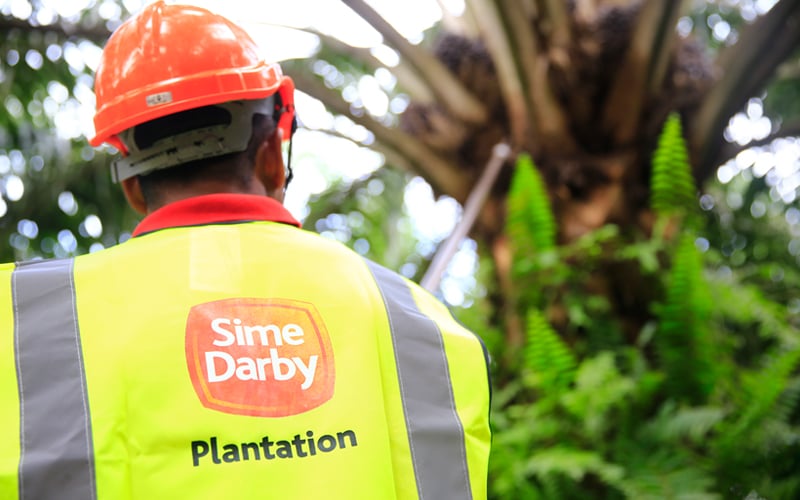
PETALING JAYA: Migrants have long accounted for the majority of workers in the traditionally labour-intensive plantation sector.
In 2022, Bloomberg reported that despite attractive incentives, Malaysians had shown little interest in working in the plantation sector, leaving migrants to dominate the labour force. They now account for about 85% of all workers.
The majority of tasks on palm oil plantations involve harvesting activities and the evacuation of fruits from the estates.
The government, concerned about the outflow of the ringgit as foreign workers repatriate their earnings, and the higher level of unemployment among Malaysians, has urged the plantation sector to find solutions for this decades old problem.
A sector-wide revamp will make a career in the sector a more attractive option for young Malaysians.
In the 2024 budget which was tabled on Oct 13, last year, Prime Minister Anwar Ibrahim, who is also finance minister, said that embracing mechanisation will enhance productivity in agriculture.
“To increase productivity and reduce dependence on foreign labour through mechanisation and automation such as drones and self-driving vehicles, the scope of automation tax incentives will be expanded to cover the commodities sector under the ministry of plantation and commodities,” said Anwar.
Deputy prime minister Fadillah Yusof had said earlier that mechanisation would be the focus of several initiatives that would be put in place.
Incorporating mechanisation and advanced technology would not only enhance efficiency but also promise improved income opportunities, he was reported as saying in The Edge in March 2023.
Mechanisation of estate operations would create new jobs with higher salaries for skilled Malaysians, which would go a long way towards reducing the number of manual and foreign workers in the sector.
Breaking the stigma
The labour-intensive work in oil palm plantations is often categorised as 3D, or dirty, dangerous and difficult. Sime Darby Plantation Bhd (SDP) group managing director Helmy Othman Basha said this had led to a stigma around the industry, thus deterring local job seekers.
“To change this perception, we’ve got to change the way work is done. That is the only way to encourage young, qualified local workers, both men and women, to embrace the new types of work that will be undertaken in a modern plantation,” he explained.
“Embracing technology can create an appealing and dynamic work environment, and will enhance prospects of upward mobility for skilled Malaysians,” he added.
Promoting high-skilled workers
Many industry leaders have said that it would be “impossible to mechanise the harvesting of palm fruits” for a number of reasons.
Helmy, while acknowledging that it will be challenging to find solutions, says: “Of course it will not be easy to find less laborious ways of harvesting, but not doing anything about it is definitely not an option.”
New jobs already available in SDP’s estates include those for machine specialists, technicians and drone pilots.
The company is also collaborating with a wide array of partners across organisations, agencies, educational institutions and TVET (technical and vocational education and training) colleges to develop young local graduates and workers to take the new jobs created in SDP’s estates.
The future with mechanisation
Helmy said that reducing the reliance on manual labour would be the cornerstone of SDP’s plan to achieve a 100% local labour force by 2027.
“We are actively engaged in rigorous testing to explore a range of innovative solutions,” he told FMT Business.
While SDP has set up its own Mechanisation Transformation Unit and Robotics Centre in Carey Island, Selangor, it is also collaborating with local start-ups to enhance harvesting methods, leveraging on cutting-edge technologies such as drones, robotic arms, unmanned vehicles, detection systems, and various other technological components and advancements.
Helmy, who is also chairman of the Malaysian Palm Oil Board (MPOB), says the industry cannot do it alone, and welcomes the government’s strong support for industry players making the transition towards technology.
“SDP has showcased a steadfast commitment and substantial advancements in mechanising, automating and digitalising our oil palm plantation operations. Our focus has been on developing and introducing a range of machines and solutions designed to mechanise non-harvesting tasks within oil palm plantations.
“We’ve also begun offering these innovations to fellow industry players,” he added.
The government’s push for mechanisation and automation goes beyond just the plantation industry and extends to various sectors.
In the 2024 budget announcement, Anwar also said the government will intensify its efforts to encourage MSMEs to increase their level of competitiveness through the transformation of business models via automation and digitalisation.
One key initiative is the allocation of RM100 million for digitalisation grants that will see more than 20,000 MSME entrepreneurs receiving up to RM5,000 each to improve their sales, inventory and digital accounting systems.
There will also be a RM900 million fund, overseen by Bank Negara Malaysia, from which SMEs can tap for loans to boost their business productivity through automation and digitalisation.
Reflecting on the budget, Malaysian Rubber Products Manufacturers Association (MRPMA) president Yeaw Kok Kwei sees the government’s response to industry needs as a significant and positive step forward.
“It’s crucial to keep pace with technology for efficient production; otherwise, competing in this demanding market becomes challenging,” he told FMT Business.
“Government agencies have been actively advocating the Fourth Industrial Revolution (IR4.0) with a focus on industrialisation. SMEs are eagerly anticipating government support in the form of grants for mechanisation and automation.
“Now, the responsibility lies with the administrators to expedite the distribution of loans, enabling industry players to hasten the revolution in industrial automation. This acceleration will benefit SMEs and the entire nation,” Yeaw added. - FMT



No comments:
Post a Comment
Note: Only a member of this blog may post a comment.